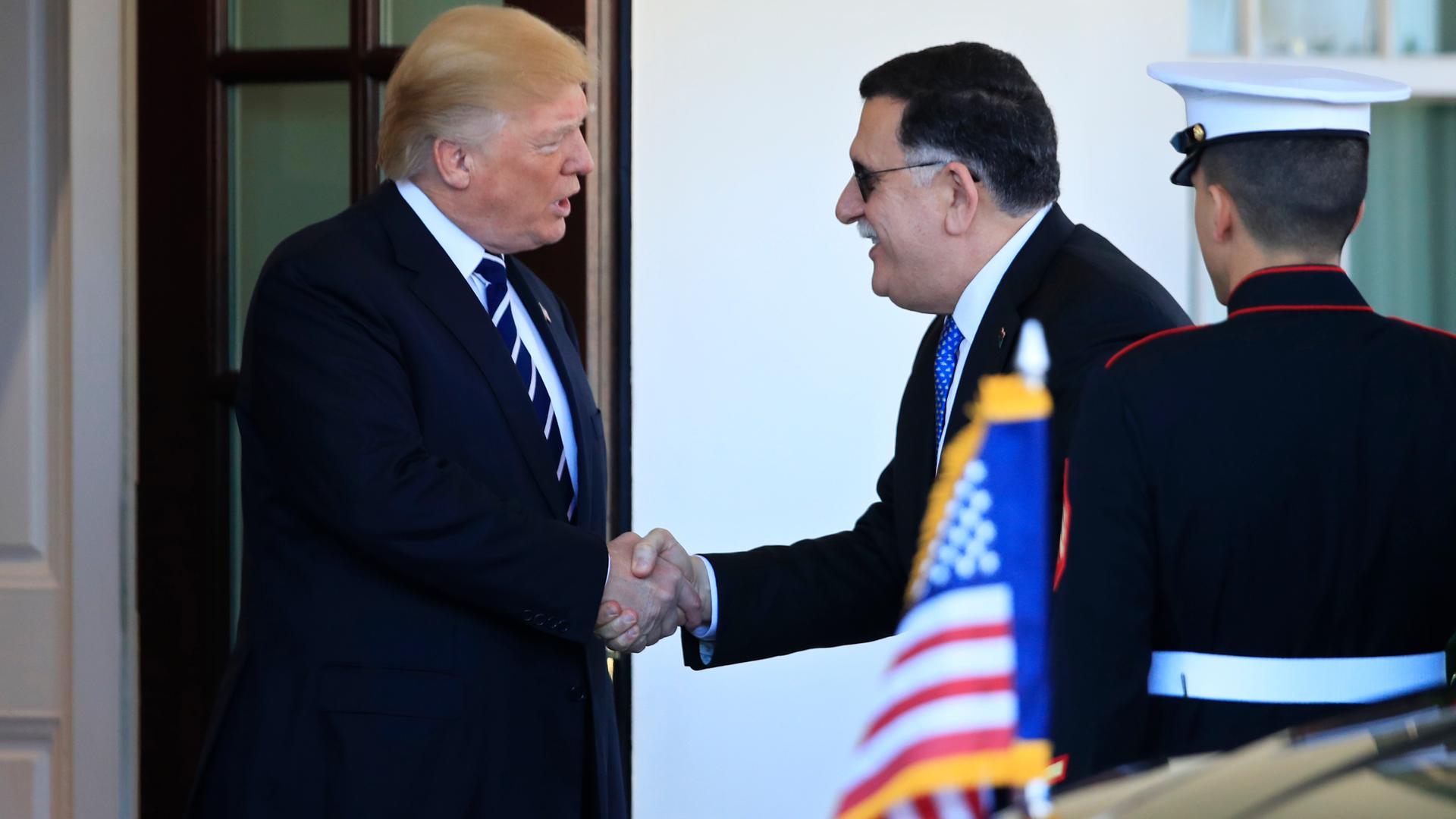Publicly, the US backs the UN-backed government in Tripoli. It’s time it starts showing that support.
Libya’s interior minister Fathi Bashagha proposed to host an American military base in Libya to counter Russian influence in the region. Since September 2019, the arrival of Russian mercenaries in numbers and air support from the UAE are fuelling the conflict despite an official UN arms embargo.
According to some reports, the UAE has made a 3,000 ton delivery of military equipment to Haftar’s forces over the last 3 weeks.
Boosted with such support levels, Haftar has provoked an all-out military conflict in Libya. In April of last year, he launched a large scale offensive to capture Tripoli, the capital which hosts the internationally recognised government of Libya – the Government of National Accord (GNA).
The ongoing fighting, use of fighter jets, and drone strikes have had a humanitarian fallout but led to no clear advantage for Haftar’s forces.
Libya has the largest oil reserves in Africa, and Washington reportedly sees Libya’s oil production as important in keeping global prices low. However, Libya until recently has been producing about 1.2 million barrels per day (BPD) of oil in recent months, and all major fields lie in areas controlled by Haftar’s militia groups.
The country’s largest oilfield and a second major one in the southwest began shutting down last month after forces loyal to Haftar closed a pipeline connecting them to the coast. Oil is the lifeblood of the Libyan economy and the country’s primary source of revenue. Haftar has been trying to use it as a trump card.
UN efforts to broker a Libyan ceasefire could plunge further into chaos with the unexpected resignation of Ghassan Salame, the UN special envoy to the country. Last week, Salame brought the UN-backed government and the Haftar-led Libyan National Army (LNA), the two warring sides, to Geneva for peace talks but the representatives suspended their involvement and his latest effort at peace-making failed to achieve a breakthrough.
The United States, along with the other Western powers, publicly supports the Tripoli government and a United Nations-sponsored peace process. However, they have done little in the way of concrete action to support Libya’s internationally recognised government.
Trump has long seen the Libyan conflict as a European problem of little strategic significance for American interests. This has arguably given Russia more room to manoeuvre and exploit the vacuum, resulting in increased numbers of Russian mercenaries arriving to support Haftar. It is also important to note that since 2015, Russia has been gradually ramping up its engagement in Libya where it sees economic opportunities and a chance to expand its influence at the expense of Western powers.
Russia’s involvement in Libya takes place primarily through the ‘private’ security firm Wagner, which has been using Sukhoi jets, coordinated missile strikes, and precision-guided artillery, as well as snipers, to help Haftar seize the capital from the internationally recognised government.
Without these foreign actors, Haftar’s self-described Libyan National Army (LNA) – a ragtag of different militias and mercenary groups – cannot sustain its operations.
Russian involvement in Libya also carries a historical geopolitical dimension, particularly with Russia’s desire for access to Mediterranean ports. Libya is important to Russia both economically and politically. As a result, Russia has been strengthening its presence in the country by resuming previous agreements made with the Gaddafi regime. In August 2017, Haftar expressed his readiness to act as a guarantor of all Russian-Libyan military contracts.
It is conceivable that Russia bolsters its position in Libya for the long run, which enables Moscow to gain a vital bargaining chip over the US and Europe to access the rest of Africa. To counter such a scenario, experts believe that the US should step up and invest more in diplomacy in Libya. By fully backing the GNA, it would send a positive signal to the region that Washington puts its words into action.
Meanwhile, the limited measures the US has taken have not been enough to deter Haftar from his unilateral aggression, and are an affront to the stable, unified, democratic Libyan state the US wishes to emerge there.
Recently, it seems to be warning Haftar’s self-styled Libyan National Army (LNA) to suspend its offensive against the UN-backed government so that political negotiations are given a chance to succeed.
The US-Libya dialogue strongly criticised Moscow’s attempts to exploit the conflict against the will of the Libyan people. However, America’s main priority in Libya so far has been security, and in 2017 Trump said that he did not foresee a US role in Libya.
Beyond security concerns, greater leadership from Washington is needed to shift some regional and European countries from backing a military dictatorship to supporting a more democratic path in Libya.
The UN-led peace processes may not solve all of Libya’s problems, however, more assertive US diplomacy could help to de-escalate the fighting and demonstrate that the underlying drivers of the conflict can be addressed through a political solution.
It is essential that the US heavily pressures the various meddlers (the UAE, Egypt, and France) into reducing support for Haftar who is seen by many as the principal obstacle confronting the unity of the country.
In return, deterrence against Haftar’s actions might allow for a long-standing ceasefire. Otherwise, the lack of stability and outside support to Haftar could allow Libya to become a new Syria. The international community must urgently try and implement the political process which is the only viable way forward, as there is no military solution to this conflict.
Author: Ferhat Polat
Ferhat Polat is a Deputy Researcher at the TRT World Research Centre. He is a PhD researcher in North African Studies at the Institute of Arab and Islamic Studies in Exeter with a particular focus on Turkish Foreign Policy.
Source










Discussion about this post